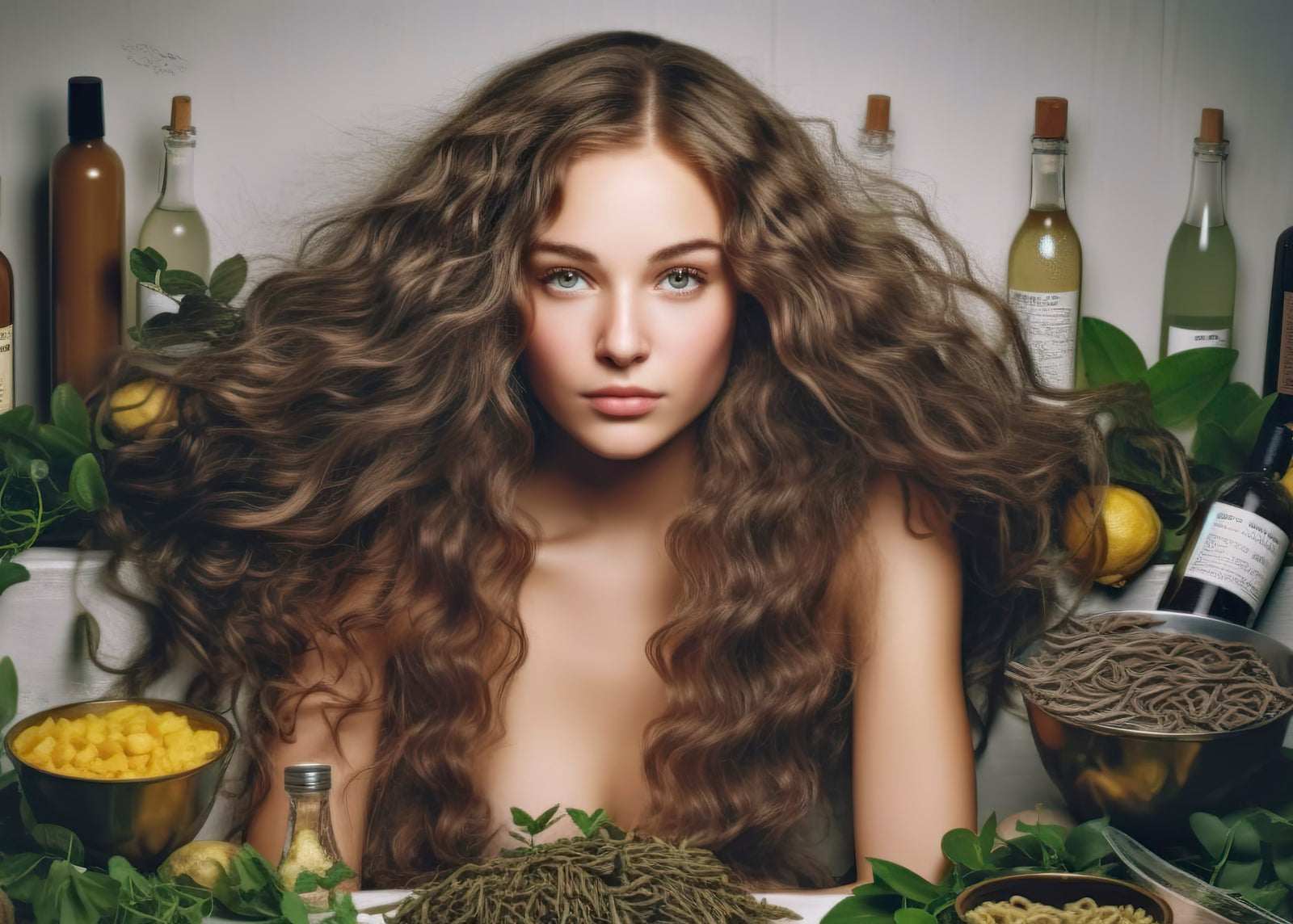Herbs for beautiful hair

Herbs are not only good for your health, but also for your beauty. When used in the form of herbal teas or hair rinses, they can improve the condition of your hair, reduce hair loss, accelerate growth, soothe scalp irritations, and fight dandruff and greasy hair.
Herbs for hair loss with strengthening and nourishing effects
Hair loss is a natural process. The causes of excessive hair loss are different - from an improper diet to body burden, stress, thyroid disease, frequent use of dyes and exposure of hair to extreme temperatures. Sometimes it is difficult to find the right reason, so it is worth using herbs regularly for weak hair.
Nettle - this is one of the most popular herbs for strengthening hair and reducing hair loss. It also has other effects: it restores shine, regulates sebum secretion, helps fight dandruff and seborrhea. It provides hair with nutrients, thanks to which hair grows faster and is healthy. Nettle is a treasure trove of organic acids (citric, formic, acetic, malic, oxalic), mineral salts (including silicon, magnesium, calcium, iron, potassium) and vitamins (A, B, C and K).
Horsetail - strengthens hair, prevents hair loss and split ends. Helps fight dandruff. Contains the most easily digestible silica among medicinal plants. Horsetail is also a good source of iron, manganese, phosphorus, calcium and vitamin C.
Burdock - burdock root is used in cosmetics. Regular use strengthens and nourishes hair follicles, stimulates hair growth and prevents hair loss. It also has other valuable properties: fights dandruff and soothes itchy scalp.
Fenugreek - is a unique plant used as a medicinal herb, spice and cosmetic raw material. Ground fenugreek seeds are used to prepare an infusion, which is a natural and effective hair strengthening lotion. It soothes scalp irritation, oiliness and itching. It stimulates the growth of “baby hair”.
What herbs are good for oily hair?
Most herbs used for hair also prevent it from getting oily. Their mechanism of action is, among other things, regulating sebum secretion. When the gland is not working properly, sebum secretion and accumulation increase. As a result, the hair is oily, not very lush and unsightly. This can be prevented by drinking herbs regularly and using rinses. Good herbs for oily hair are the ones mentioned above: nettle, horsetail and burdock. In addition, it is worth using the following herbs:
Small flowered willow - the herb of this common plant is one of the most effective sebum regulating agents. It not only prevents oily hair, but also combats pimples, dandruff and prevents androgenetic alopecia.
Black radish - helps with oily hair and at the same time delays the aging process. It is rich in vitamin C, B vitamins, sulfur and iron. It is a nutritional bomb. The only drawback is the specific smell it produces.
Sage is an herb with a beautiful smell and effective action. Sage extracts have antibacterial and antifungal properties, as well as astringent and anti-itching properties. Sage infusion, used as a hair rinse, is perfect for soothing seborrhea, and also gives hair a beautiful shine. Sage essential oil can be added to shampoo or conditioner to support the anti-seborrheic effect. Long-term use of sage herb rinses can darken gray hair strands.
Hops are an excellent raw material for people struggling with excessive greasiness of the hair and its low volume. Regular use of a rinse with hop cones is recommended for excessive greasiness of the hair, inflammation of the hair follicles and itchy skin. Hops will make your scalp in better condition after such a treatment, and your hair will become fluffier and softer.
Anti-dandruff herbs
Rosemary - an aromatic herb known as a spice in Mediterranean cuisine, but it also has medicinal properties and is valued in cosmetology. Rosemary extracts have a stimulating effect on circulation, are antibacterial and refreshing. A rosemary rinse, or the addition of rosemary oil to a mask, will facilitate the care of the scalp prone to seborrhea and dandruff.
Lavender - infusions of lavender flowers have calming, antibacterial and antifungal properties. Applied to the skin, lavender flower preparations limit the development of microorganisms, including yeasts, which are a common cause of seborrheic changes and dandruff.
Effective herbs for dry hair
In addition to their traditional properties, herbs for dry hair are designed to moisturize the strands. Thanks to this, the hair is more pleasant to the touch and easy to comb. Rinses using many types of herbs can intensify dryness. Therefore, in the case of dry hair, it is worth using only those that have a moisturizing effect.
Linseed is generally associated with digestive system problems, but it is also a valuable cosmetic herb. Linseeds provide valuable oil after excluding, and in turn after brewing, mucus resembling the consistency of jelly. Both oil and seed infusion can be applied to dry and unruly hair. Oil in the form of a pre-mask, which we apply before applying shampoo to the scalp. On the other hand, the gelatinous "linseed jelly", as a hair conditioning gel, we rub into the ends every day.
Licorice root is valued in cosmetics. Licorice extracts have skin moisturizing, regenerating and antiseptic properties. They are perfect for washing the face in the case of pigmentation changes and acne. On the other hand, licorice preparations are recommended for the scalp in the case of dandruff, dryness and itching.
Chamomile - infusions of chamomile flowers have a disinfecting, soothing and brightening effect. They facilitate combing and increase the volume of hair. Using a chamomile rinse regularly on previously undyed hair, gives a delicate lightening effect.
Linden - protects hair from excessive drying. Thanks to the mucus present in the linden flower infusion, the rinse provides elasticity and prevents excessive tangling and breakage of hair.






